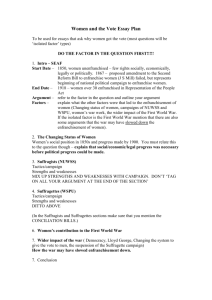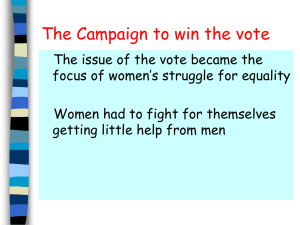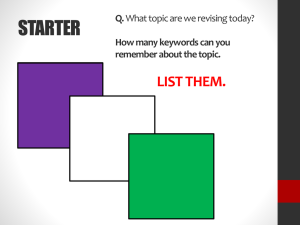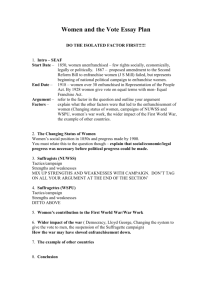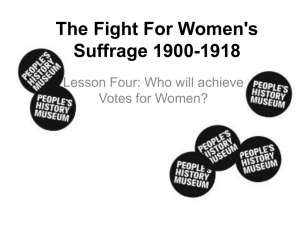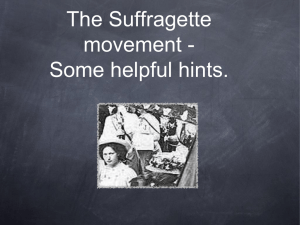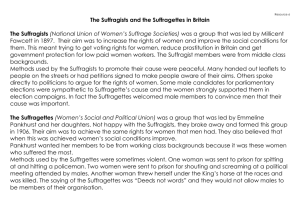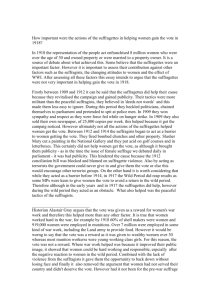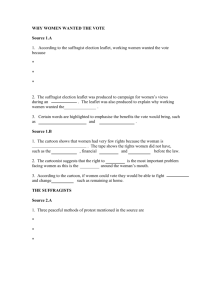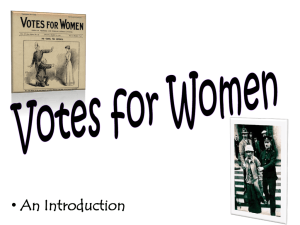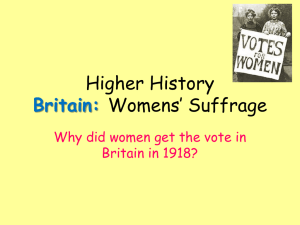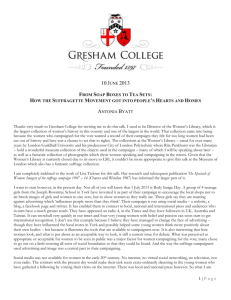women's suffrage essay plan
advertisement
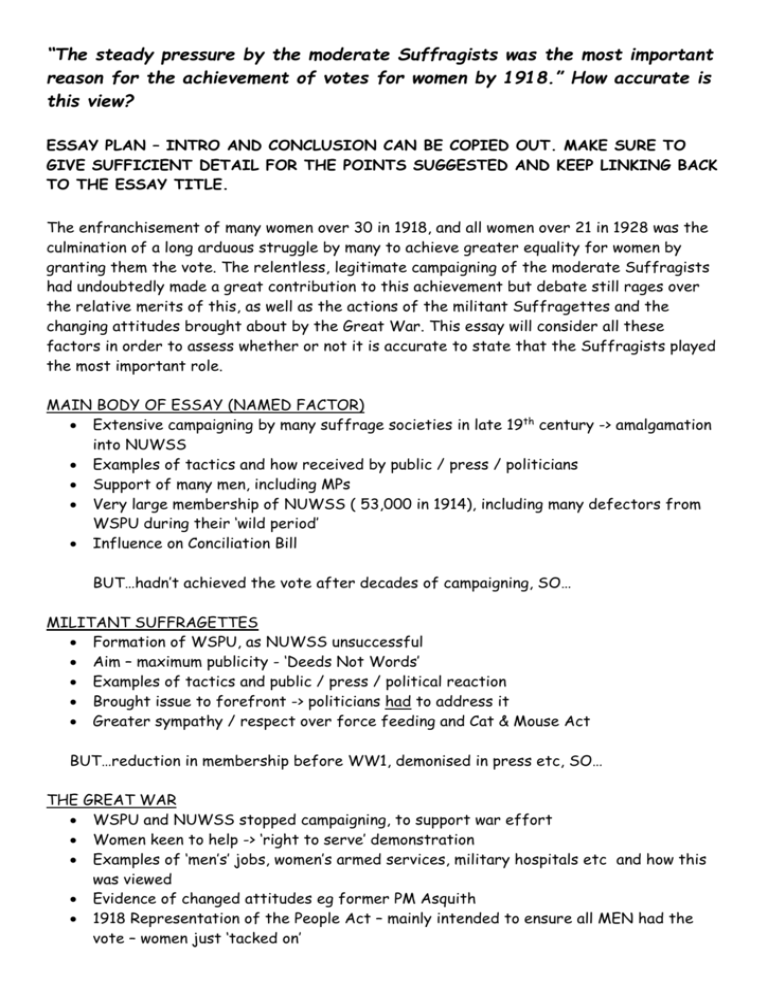
“The steady pressure by the moderate Suffragists was the most important reason for the achievement of votes for women by 1918.” How accurate is this view? ESSAY PLAN – INTRO AND CONCLUSION CAN BE COPIED OUT. MAKE SURE TO GIVE SUFFICIENT DETAIL FOR THE POINTS SUGGESTED AND KEEP LINKING BACK TO THE ESSAY TITLE. The enfranchisement of many women over 30 in 1918, and all women over 21 in 1928 was the culmination of a long arduous struggle by many to achieve greater equality for women by granting them the vote. The relentless, legitimate campaigning of the moderate Suffragists had undoubtedly made a great contribution to this achievement but debate still rages over the relative merits of this, as well as the actions of the militant Suffragettes and the changing attitudes brought about by the Great War. This essay will consider all these factors in order to assess whether or not it is accurate to state that the Suffragists played the most important role. MAIN BODY OF ESSAY (NAMED FACTOR) Extensive campaigning by many suffrage societies in late 19th century -> amalgamation into NUWSS Examples of tactics and how received by public / press / politicians Support of many men, including MPs Very large membership of NUWSS ( 53,000 in 1914), including many defectors from WSPU during their ‘wild period’ Influence on Conciliation Bill BUT…hadn’t achieved the vote after decades of campaigning, SO… MILITANT SUFFRAGETTES Formation of WSPU, as NUWSS unsuccessful Aim – maximum publicity - ‘Deeds Not Words’ Examples of tactics and public / press / political reaction Brought issue to forefront -> politicians had to address it Greater sympathy / respect over force feeding and Cat & Mouse Act BUT…reduction in membership before WW1, demonised in press etc, SO… THE GREAT WAR WSPU and NUWSS stopped campaigning, to support war effort Women keen to help -> ‘right to serve’ demonstration Examples of ‘men’s’ jobs, women’s armed services, military hospitals etc and how this was viewed Evidence of changed attitudes eg former PM Asquith 1918 Representation of the People Act – mainly intended to ensure all MEN had the vote – women just ‘tacked on’ BUT… 1918 Act only enfranchised middle-class women over 30, whereas most of the war workers would have been younger and working-class; some historians believe Government were afraid of suffragette campaign starting up again. CONCLUSION It can be seen, therefore, that many factors played a part in helping women to get the vote in 1918. The First World War could be seen as a catalyst, giving women the opportunity to prove that they really were as worthy of having the vote as men. However the issue would certainly not have been in the forefront of the Government’s mind without the publicityseeking campaigning of the Suffragettes, immediately prior to the War. It is difficult, however, to consider this to have been the most important factor, due to the very negative image of Suffragettes that prevailed, and the fact that many WSPU members had defected to the NUWSS. The sheer size of the NUWSS membership, and duration of their campaigning would therefore indicate that the moderate Suffragists, by sowing the seeds of the campaign for women’s suffrage, were the most important factor in achieving female enfranchisement in 1918.
